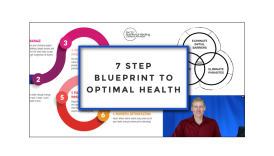Prioritizing Self-Care: The Key to a Healthy Life

I Importance of Self-Care
Understanding Self-Care
Self-care is often misunderstood as a luxury or selfish endeavor, but in reality, it is a fundamental practice that promotes overall well-being. At its core, self-care involves intentionally engaging in activities that nurture your physical, emotional, and mental health. It can be as simple as taking a long bath, reading a book, or spending time in nature. For instance, Anna, a busy professional, found solace in daily journaling, which helped her process her thoughts and emotions amid a hectic schedule.
- Prioritizing Self-Care: The Key to a Healthy Life
- I Importance of Self-Care
- Understanding Self-Care
- Benefits of Prioritizing Self-Care
- II Physical Self-Care Practices
- Importance of Exercise
- Healthy Eating Habits
- III Mental and Emotional Self-Care
- Stress Management Techniques
- Importance of Setting Boundaries
- IV Self-Care for Personal Growth
- Practicing Mindfulness
- Pursuing Hobbies and Interests
- V Social Self-Care Strategies
- Building Supportive Relationships
- Importance of Saying No
- VI Balancing Work and Self-Care
- Setting Realistic Goals
- Understanding the Importance of Rest
- VII Self-Care and Mental Health
- Seeking Professional Help When Needed
- Importance of Self-Reflection
- VIII Creating a Self-Care Routine
- Establishing Daily Self-Care Practices
- Self-Care Activities for Relaxation
Benefits of Prioritizing Self-Care
When self-care becomes a priority, the benefits are profound and far-reaching. Here are some of the key benefits:
- Enhanced Mental Clarity: Regular self-care can reduce stress and anxiety, leading to improved focus and productivity.
- Increased Energy Levels: Engaging in physical self-care activities, such as exercise, can boost overall energy and vitality.
- Better Relationships: Taking care of oneself lays the foundation for healthier interactions with others, allowing for more meaningful connections.
Incorporating self-care into daily life empowers individuals to lead fulfilling lives, ultimately creating a positive ripple effect on both themselves and those around them.
II Physical Self-Care Practices
Importance of Exercise
Physical self-care is an essential aspect of maintaining overall health, and one of the key components is exercise. Regular physical activity not only improves cardiovascular health but also boosts mood and enhances self-esteem. For example, John, who started running three times a week, noticed he felt more energized and less stressed by the end of his first month. Incorporating exercise into your routine can be as easy as:
- Walking: A simple walk can clear your mind and improve circulation.
- Yoga: This helps in building strength while promoting relaxation and mindfulness.
- Team Sports: Engaging in sports is a fun way to stay active and meet new people.
Healthy Eating Habits
Alongside exercise, healthy eating is crucial for physical self-care. Nourishing your body with the right foods can lead to increased energy levels and better mood regulation. Think of it like fueling a car; the better the fuel, the better the performance. To develop healthy eating habits, consider these tips:
- Balanced Meals: Aim for a mix of protein, healthy fats, and carbohydrates.
- Hydration: Drink plenty of water throughout the day to stay energized.
- Mindful Eating: Pay attention to your hunger cues and savor every bite.
By prioritizing both exercise and healthy eating, individuals lay the groundwork for a healthier, more vibrant life.
III Mental and Emotional Self-Care
Stress Management Techniques
As physical self-care lays the foundation for health, mental and emotional self-care is equally vital. One critical element is effective stress management. Everyone experiences stress, but how one manages it makes all the difference. For instance, Lisa discovered that adopting mindfulness techniques, such as meditation and deep-breathing exercises, significantly reduced her anxiety during work meetings. To manage stress effectively, consider these techniques:
- Mindfulness Meditation: Focus on your breath for a few minutes to center your thoughts.
- Journaling: Write down your feelings and reflect on your day to gain clarity.
- Physical Activity: As previously mentioned, exercise can be an excellent stress reliever.
Importance of Setting Boundaries
Another crucial aspect of mental and emotional self-care is setting boundaries. Without clear boundaries, individuals may find themselves feeling overwhelmed and depleted. Sarah, for example, learned to say “no” to extra responsibilities at work, allowing her to prioritize her mental well-being. Here’s how to establish healthy boundaries:
- Communicate Openly: Let others know your limits and needs.
- Be Firm: It’s okay to prioritize your needs over others’ expectations.
- Assess Regularly: Check in with yourself to see if boundaries need adjustment.
By mastering stress management and setting boundaries, individuals can create a more balanced and fulfilling life.
IV Self-Care for Personal Growth
Practicing Mindfulness
Continuing the journey of self-care, it’s essential to recognize how mindfulness plays a pivotal role in personal growth. Practicing mindfulness helps individuals stay present and engaged in their daily lives, enabling them to fully experience each moment. For example, Tom began to incorporate mindfulness into his morning routine by sipping tea in silence, which transformed his frantic start to the day into a refreshing moment of calm. To embrace mindfulness, consider these strategies:
- Daily Meditation: Start with just five minutes each morning to clear your mind.
- Mindful Eating: Focus on the flavors and textures of your food instead of multitasking.
- Nature Walks: Spend time outdoors while paying attention to your surroundings.
Pursuing Hobbies and Interests
Equally important for personal growth is the act of pursuing hobbies and interests. Engaging in activities that ignite passion can foster creativity and joy. Jenny, for instance, rediscovered her love for painting, which not only provided a creative outlet but also served as a form of therapy. Here are some tips for integrating hobbies into your life:
- Schedule Time: Designate a specific time each week for your hobby.
- Explore New Activities: Don’t hesitate to step out of your comfort zone and try something new.
- Join Clubs or Groups: Connect with like-minded individuals to share your interests.
By practicing mindfulness and nurturing personal interests, individuals pave the way for significant growth and a more enriched life.
V Social Self-Care Strategies
Building Supportive Relationships
Transitioning from personal growth, social self-care focuses on the importance of nurturing relationships. Building supportive relationships can significantly enhance one’s emotional well-being. Connections with friends, family, and community provide a safety net during challenging times. For Lisa, reaching out to her old friends for regular catch-ups transformed her feeling of loneliness into a sense of belonging. To cultivate these relationships, consider these strategies:
- Scheduled Check-Ins: Set aside time each week to connect with loved ones, whether through calls or meet-ups.
- Active Listening: Show genuine interest in others’ lives by asking open-ended questions.
- Participate in Community Events: Joining local clubs or volunteering can introduce you to new, supportive people.
Importance of Saying No
Another essential aspect of social self-care involves learning the power of saying no. People often overextend themselves to please others, neglecting their own needs in the process. For example, Mark realized that he was constantly draining his energy by agreeing to every social obligation. By learning to say no, he could focus on activities that truly mattered to him. To effectively say no, keep these tips in mind:
- Be Honest and Direct: Express appreciation but stick to your boundaries without hesitation.
- Practice Assertiveness: Politely decline without feeling guilty.
- Offer Alternatives: Suggest other times to connect if appropriate.
By focusing on building supportive relationships and mastering the art of saying no, individuals can enhance their social well-being and enjoy more authentic connections.
VI Balancing Work and Self-Care
Setting Realistic Goals
As we continue to explore self-care, it’s vital to address the balance between work and personal wellbeing. One effective way to maintain this balance is by setting realistic goals. Jamie, a marketing manager, found herself overwhelmed with deadlines until she realized she needed to prioritize her workload. By breaking her tasks into manageable goals, she could tackle her projects without sacrificing her mental health. Here’s how to set achievable goals:
- SMART Criteria: Ensure your goals are Specific, Measurable, Achievable, Relevant, and Time-bound.
- Prioritize Tasks: Use tools like to-do lists or digital planners to categorize tasks by urgency.
- Celebrate Small Wins: Acknowledge and reward yourself for completing even minor tasks to boost motivation.
Understanding the Importance of Rest
Equally important is understanding the role of rest in maintaining balance. Many individuals overlook the need for breaks, believing that constant work leads to higher productivity. However, Jessica learned that taking regular breaks actually enhanced her focus. Incorporate rest into your routine with these strategies:
- Scheduled Breaks: Use techniques like the Pomodoro Technique, where you work for 25 minutes followed by a 5-minute break.
- Limit After-Hours Work: Establish boundaries for work communications after hours.
- Prioritize Sleep: Ensure you get adequate sleep each night to recharge and restore energy.
By setting realistic goals and recognizing the significance of rest, individuals can achieve a healthier balance between work and self-care, ultimately leading to greater fulfillment.
VII Self-Care and Mental Health
Seeking Professional Help When Needed
Continuing from the exploration of work-life balance, it’s essential to delve into the critical intersection of self-care and mental health. One significant aspect is recognizing when to seek professional help. Many people mistakenly equate asking for help with weakness; however, doing so demonstrates strength and self-awareness. For instance, when Mark found himself feeling anxious and overwhelmed for prolonged periods, he decided to speak with a therapist. This action helped him gain valuable tools for managing his feelings. If you’re considering professional help, remember these tips:
- Identify Your Needs: Understand your feelings and what kind of support you require.
- Research Options: Look for therapists, support groups, or counselors that cater to your specific needs.
- Commit to the Process: Remember that seeking help is a journey, and it may take time to find the right fit.
Importance of Self-Reflection
Another vital component of maintaining mental health is self-reflection. Taking time to reflect provides insight into your thoughts, feelings, and behaviors, allowing you to identify patterns that may require attention. For example, Sarah started journaling weekly, enabling her to untangle her emotions and recognize triggers for stress. To incorporate self-reflection into your routine, consider the following:
- Daily Journaling: Spend a few minutes each night to write about your day and express emotions.
- Meditation: Use mindfulness techniques to deepen your understanding of your feelings.
- Feedback from Trusted Friends: Ask for honest input from close friends about your behaviors and attitudes.
By seeking professional help when necessary and engaging in self-reflection, individuals can foster their mental health and proceed on their journey of self-care more effectively.
VIII Creating a Self-Care Routine
Establishing Daily Self-Care Practices
As we conclude our exploration of self-care, it’s essential to focus on creating a personalized self-care routine. Establishing daily self-care practices allows individuals to weave care into their lives seamlessly. Consider Maria, who started each day with a morning routine that included stretching, gratitude journaling, and a nutritious breakfast. This simple routine transformed her mornings and set a positive tone for the day ahead. To develop your own daily self-care practices, try the following:
- Morning Ritual: Begin your day with activities that energize you, such as meditation or reading.
- Breaks During Work: Incorporate quick breaks to stretch or practice deep breathing.
- Evening Wind Down: Create a calming evening routine, such as taking a bath or reading before bed.
Self-Care Activities for Relaxation
Beyond daily practices, incorporating activities that promote relaxation is vital for overall well-being. Whether it’s engaging in hobbies or simply unplugging from technology, these moments of relaxation can recharge your spirit. For example, David found solace in gardening, which became a therapeutic escape from his busy lifestyle. Consider these self-care activities to foster relaxation:
- Nature Walks: Disconnect and enjoy the tranquility of nature.
- Artistic Outlets: Explore activities like painting or crafting to express your creativity.
- Mindful Breathing: Spend a few minutes focusing on your breath to promote calm.
By establishing daily self-care practices and embracing relaxing activities, individuals cultivate a meaningful routine that supports both physical and mental well-being, ultimately leading to a richer, more balanced life.





